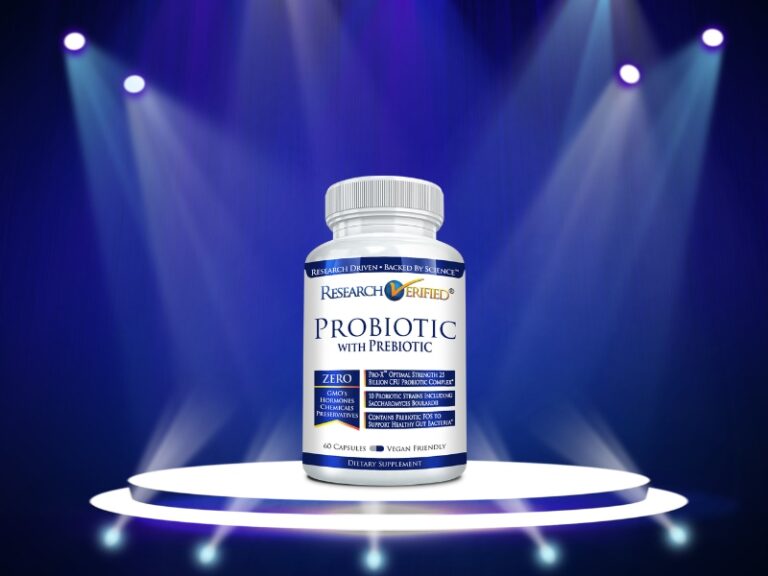Did you know the human gut is home to over 100 trillion microorganisms? Probiotics are key players in this vast community, with significant positive impacts on our health. While they are traditionally hailed for their role in digestive health, recent research has expanded our understanding, revealing that these beneficial bacteria offer far-reaching health benefits beyond aiding digestion. This article aims to shed light on these lesser-known aspects of probiotics, offering insights into how these microscopic residents of the gut are quietly revolutionizing our approach to health. And who knows? By the end of this journey, you might find probiotics to be your new wellness best friend.
Understanding Probiotics
The term “probiotics” refers to beneficial live microorganisms, or “good bacteria”, that help keep our body functioning optimally. Probiotics are found in various fermented foods like yogurt, kefir, kombucha, sauerkraut, and kimchi, as well as supplements. Each source offers different strains of probiotics, which can have varied effects on the body (1).
But it’s not just about having these probiotics; it’s about maintaining a balance. The human gut is a complex ecosystem with a delicate balance of microorganisms. When this balance is disrupted, whether by illness, a course of antibiotics, or poor diet, it can lead to digestive issues and other health problems. This is where probiotics step in, helping to restore the balance and maintain a healthy gut environment.
In the upcoming sections, we’ll see how this balanced gut environment, maintained by probiotics, plays a pivotal role not only in digestion but in various aspects of our health.
The Benefits
1. Probiotics and Gut Health

The most well-known benefit of probiotics is their positive impact on gut health. A healthy gut is essential not only for digestion but also for overall health and well-being. Probiotics contribute significantly to this area in several ways.
Enhancing Digestive Function: Probiotics assist with breaking down food, absorbing nutrients, and processing waste (2). This is crucial for efficient digestion and preventing issues like bloating, constipation, and diarrhea.
Gut Flora Balance: Probiotics help maintain a healthy balance of the trillions of bacteria in the gut. When this balance is disturbed, it can lead to gastrointestinal disorders like irritable bowel syndrome (IBS) and inflammatory bowel disease (IBD). Regular intake of probiotics can help prevent these imbalances (3).
Gut Barrier Function: Probiotics strengthen the gut barrier, which acts as a defense line against harmful substances and pathogens. A strong gut barrier is important for preventing issues like leaky gut syndrome, which is when bacteria and toxins leak through the intestinal wall (4).
Immune System Support: A significant portion of the immune system is housed in the gut. Probiotics interact with these immune cells, stimulating them and potentially enhancing the body’s overall immune response (5).
Combating Antibiotic Side Effects: Antibiotics do not discriminate between good and bad bacteria, and can disrupt the natural balance of the gut. Probiotics can help restore this balance after antibiotic use, thereby reducing the likelihood of antibiotic-associated diarrhea (6).
2. Probiotics and Immune Health

The impact of probiotics on the immune system is a fascinating area of study, revealing the intricate ways our gut health influences overall immunity. Probiotics play a pivotal role in bolstering our body’s defenses in several ways.
Gut-Immune System Connection: As mentioned above, a large portion of the body’s immune cells reside in the gut. Probiotics interact with these cells, enhancing the gut’s immune response (5). This interaction helps in the production of antibodies and strengthens the body’s defense against harmful pathogens.
Reducing Inflammation: Chronic inflammation is a root cause of many diseases. Probiotics can help reduce systemic inflammation, thus potentially lowering the risk of certain inflammatory and autoimmune conditions (7).
Enhancing Disease Resistance: Regular intake of probiotics has been linked to reduced incidence and severity of respiratory infections (8).
Allergy Mitigation: Some studies suggest that probiotics may reduce the severity of certain allergies, as they help regulate the body’s immune response to allergens (9).
3. Probiotics and Mental Health
The exploration of the gut-brain axis has opened a new frontier in understanding mental health, revealing a significant connection between the gut microbiome and the brain. This connection highlights how probiotics can influence mental well-being.

Mood Improvement: Certain strains of probiotics have been linked to the production of mood-regulating neurotransmitters like serotonin and dopamine. Regular consumption of these probiotics might help alleviate symptoms of depression and anxiety (5).
Stress Reduction: Probiotics can play a role in modulating the body’s stress response. Studies have shown that probiotics can help reduce psychological stress and improve mental resilience (10).
Cognitive Health: Emerging evidence suggests that a healthy gut microbiome, supported by probiotics, may improve cognitive functions like memory and concentration (11).
Sleep Quality: Since the gut-brain axis also impacts sleep patterns, probiotics might help in regulating sleep and combating insomnia (12).
Nourish your Gut, Body & Mind – Research Verified Probiotic + Prebiotic
4. Probiotics for Skin Health
The health of our skin, the body’s largest organ, is surprisingly linked to the balance of our gut microbiome. Probiotics play a key role in this connection, offering benefits for skin health that are both direct and indirect.
Combating Skin Conditions: Probiotics can help manage and reduce the severity of certain skin conditions like eczema, acne, and rosacea (13, 14). They do this by modulating the body’s immune response and reducing inflammation, which is often a contributing factor in these conditions.
Strengthening Skin Barrier: The skin has its own microbiome, and probiotics can help in maintaining its balance, just like they do in the gut. This balance is crucial for a strong skin barrier, which protects against harmful microbes and environmental damage (15).
Hydration and Anti-Aging: Some probiotics have been shown to improve skin hydration and reduce signs of aging (16). They can aid in the production of ceramides, which are natural lipids that keep the skin moisturized and youthful.
5. Probiotics for Heart Health
The benefits of probiotics also extend to the cardiovascular system, offering support and potential improvements to heart health (17). This aspect of probiotics is particularly important given the prevalence of heart-related conditions.
Cholesterol Management: Certain strains of probiotics have been shown to help lower LDL (bad) cholesterol levels (18). They do this by breaking down bile in the gut, thereby preventing it from being reabsorbed in the blood as cholesterol.

Blood Pressure Regulation: Regular consumption of probiotics can have a modest but significant effect on reducing blood pressure, which is particularly beneficial for those with hypertension or pre-hypertension (19).
Reducing Inflammation: Since inflammation is a known risk factor for heart disease, the anti-inflammatory effects of probiotics can contribute to heart health. By reducing systemic inflammation, they may help lower the risk of cardiovascular diseases (17).
Improving Metabolic Health: Probiotics can also impact metabolic factors like blood sugar levels and body weight, which are closely linked to heart health. They can play a role in managing conditions like metabolic syndrome and type 2 diabetes, both of which are risk factors for heart disease (20).
Choosing the Right Probiotics
As we’ve explored the various benefits of probiotics, it’s essential to understand that not all probiotics are created equal. Selecting the right probiotic supplement is essential for reaping their full benefits. Here are some key factors to consider:
Strain : Different strains of probiotics have distinct functions. Consider your specific health goals when choosing a probiotic supplement. For example, if you’re aiming to improve gut health, Lactobacillus and Bifidobacterium strains are often recommended.
CFUs (Colony-Forming Units): This indicates the number of live bacteria in a probiotic supplement. Higher CFUs can be more potent – aim for at least 1 billion CFU.
Combination Products: Some supplements offer a combination of probiotic strains, which can provide a broader spectrum of benefits. Multi-strain supplements are often chosen for general wellness.
Prebiotic Inclusion: For optimal results, select a probiotic supplement that also contains prebiotics. Prebiotics serve as food for probiotics, enhancing their effectiveness and supporting a healthy gut microbiome.
By making informed choices when selecting probiotic supplements, you can maximize their potential benefits and support your overall health and well-being. We recommend Research Verified Probiotic with Prebiotic. It contains an optimal-strength 25 billion CFU probiotic complex with 10 probiotic strains. Plus, it includes prebiotic FOS to support the healthy bacteria in your gut. >>CLICK HERE To Learn More
Conclusion
In the world of health and wellness, probiotics have transcended their traditional role as digestive aids. Our journey through this article has unveiled the multifaceted nature of these beneficial microorganisms. They are not just heroes of gut health; they are champions of overall well-being.
From maintaining a balanced gut environment to strengthening our immune defenses, enhancing mental well-being, nurturing skin health, and even contributing to heart health, probiotics have proven to be versatile.
Consider incorporating probiotics into your daily routine. Whether through dietary sources like yogurt and kefir or through carefully chosen supplements, probiotics can be your companions in the journey to holistic health.




Comments are closed.